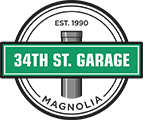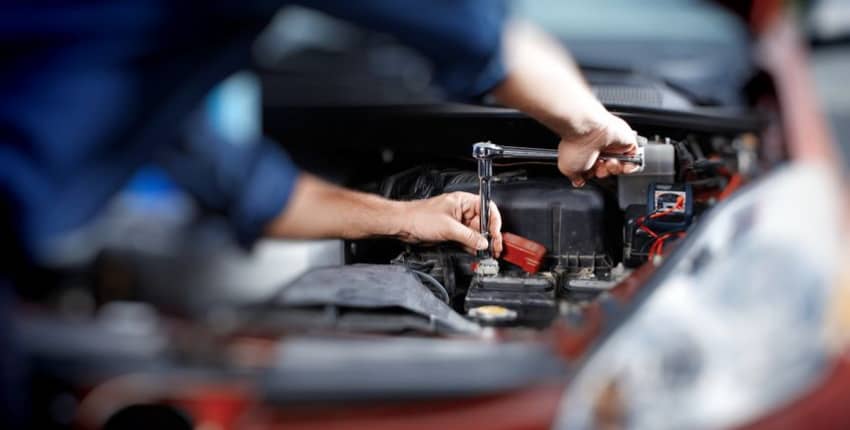Modern cars and trucks are marvels of engineering, designed for reliability and longevity. However, maintaining peak performance requires a proactive approach to engine care. In this 34th Street Garage blog post, we’ll explore four essential preventative maintenance tips to help preserve your vehicle’s engine, ensuring it runs smoothly for years to come.
- Regular Oil Changes: The Lifeline of Your Engine
The Significance of Oil Changes: Engine oil is the lifeblood of your vehicle. It lubricates moving parts, reduces friction, and helps dissipate heat. Over time, oil breaks down and becomes contaminated with dirt, metal particles, and other debris, losing its effectiveness.
How Often Should You Change Your Oil? The old rule of thumb was every 3,000 miles, but with modern lubricants and engines, many manufacturers recommend intervals of 5,000 to 7,500 miles. Some synthetic oils even allow for intervals of up to 15,000 miles. Always refer to your vehicle’s manual for the manufacturer’s recommendation.
Choosing the Right Oil: Select oil that meets the specifications outlined in your vehicle’s manual. This often includes using the correct viscosity and type (conventional, synthetic, or synthetic blend). Modern engines are designed with specific oil requirements in mind to optimize performance and longevity.
- Keeping Your Cooling System in Check
Importance of the Cooling System: The cooling system prevents your engine from overheating, which is crucial for avoiding serious damage. It circulates coolant/antifreeze to absorb and dissipate heat.
Regular Coolant Changes: Like engine oil, coolant degrades over time. Old coolant can lead to corrosion, which might cause leaks and engine damage. Most manufacturers suggest changing the coolant every 30,000 to 50,000 miles. However, some modern coolants have longer life spans, so check your owner’s manual.
Monitoring Coolant Levels and Condition: Regularly check the coolant level in the overflow tank and look for signs of contamination. If the coolant looks sludgy or discolored, it’s time for a change.
- Air Filter Maintenance: Let Your Engine Breathe
Role of the Air Filter: The air filter prevents dust, dirt, and other particles from entering the engine. A clogged air filter restricts airflow, reducing efficiency and potentially causing engine damage.
Changing Your Air Filter: The frequency of air filter changes can vary. A general guideline is every 12,000 to 15,000 miles, but driving in dusty or polluted environments might require more frequent changes. A clean air filter can improve fuel efficiency, reduce emissions, and help prevent engine wear.
- The Importance of Regular Inspections and Tune-Ups
Regular Vehicle Bumper to Bumper Inspections: Regular inspections by a qualified mechanic can catch issues before they become serious problems. This includes checking for leaks, inspecting belts and hoses for wear, and ensuring all engine components are functioning correctly.
Timing for Tune-Ups: Modern vehicles, thanks to electronic ignition and fuel injection systems, don’t require tune-ups as often as older models. However, it’s still important to follow your manufacturer’s recommendations. Generally, a tune-up might include replacing spark plugs, inspecting the ignition system, and other engine checks.
Additional Maintenance Tips:
- Check Your Battery: A failing battery can stress your vehicle’s electrical system. Regular checks ensure it’s charging correctly and free from corrosion.
- Keep an Eye on Engine Belts: Timing belts and serpentine belts are crucial for engine operation. Check for signs of wear and replace them according to your vehicle’s maintenance schedule.
Preventative maintenance is key to extending the life of your engine and ensuring your modern car or truck remains reliable and efficient. Regular oil changes, cooling system maintenance, air filter replacements, and routine inspections are simple yet effective ways to prevent costly repairs and keep your engine in top condition. By following these tips, you’ll not only preserve the heart of your vehicle but also enjoy a smoother, more efficient driving experience. Stay tuned to 34th Street Garage in Seattle for more automotive care insights and tips!

